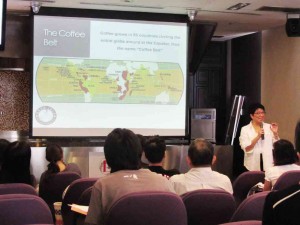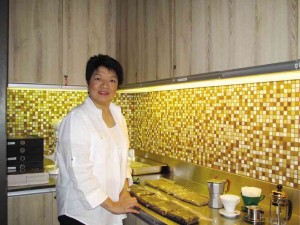How we should export Philippine coffee
In 2003, when I was still the CEO of a major coffee chain in the Philippines, I set my sights on the international market both for Philippine coffee and our coffee shop franchise by joining each and every show where we could meet potential buyers.
We joined Gulf Food Fair in Dubai in February; Foodex Japan in March; Asean Japan Center in June; Scandinavian roadshow in June; Anuga in October 2003 and Seoul Food as well.
In 2004 onwards, we did shows in Shanghai, China and also displayed our coffee in Ifex Philippines. We brought roasted Barako coffee, and we also started sampling Organic Coffee after having participated in the First Organic Coffee Conference in Uganda, East Africa and opening our eyes to the Organic markets in Europe.
In 2005, we started an Organic certification program which would run for two years. Finally, in 2007 we successfully gained an organic certification for Benguet State University’s Farms as certified by IMO of Switzerland. It cost us a lot of money but still there were no orders to fill a container. There was no market for roasted coffee. Everyone wanted to buy raw or green coffee.
I left the coffee shop chain in 2008 and concentrated on visiting coffee farms to get high-quality coffee. I knew we could do it if we got the specs right.
In 2011, the Philippine Coffee Board Inc. visited Laos to visit coffee farms and to sign up with the Asean Coffee Federaton (ACF). We became a member of ACF which brought us to farms in Indonesia, Malaysia, Thailand and Vietnam.
In the same year, I went to Chongqing, China to look into the Women Vendor and Exhibition Forum(WVEF) Program of the International Trade Center (ITC) and We Connect International. I met Accenture Global and they placed an order for delivery to Accenture Philippines under the WVEF program. In April 2012 we started our deliveries to Accenture of roasted coffee. We delivered in the Philippine offices, not abroad. This finally convinced me that roasted coffee can only be sold here while importers will definitely need Green coffee.
In 2012, we chose the farmers we worked with, saw to it that beans were processed properly as our international buyers had very high standards. We brought in an international coffee farming expert who surveyed our coffee areas and gave us the assurance that our soil and terrain were perfect for coffee.
2013 saw the completion of our plan. We now pick the best coffee origins, make sure they are processed properly and sell them as roasted coffee and also as Micro Lots to micro roasters as choosy as we are.
Now, we know that we can export small batches or micro lots of the best Philippine coffee by variety, by elevation, by distinct taste and flavor profile.
It has been a good ten years. But now, we can compete with specialty coffees of the world. We will bring in professional cuppers as we have brought in other international experts in farming, to verify our claims.
Philippine coffee is as good, if not better, than other coffees.
We will sell them as high quality specialty coffee. And that’s not a secret.
If there is Jamaican Blue Mountain, and Hawaiian Kona, there is Benguet and Sulu as well.
In the recent Biofach Japan 2013 show at Tokyo’s Big Sight our plans for Philippine coffee were confirmed. The Japanese really buy only raw beans and roast it themselves. I found a café that has two small roasters in its tiny shop in the center of Ginza. And the master roaster, now 99, has started this business back in 1948.
At the show, we found our audience for green beans. A gentleman from Fukuoka, Japan who buys and roasts coffee from Mexico and East Timor was excited about Philippine coffee. After all, we are also nearer to him than Mexico, saving him a lot on freight for as long as quality is comparable or even better than other coffees he has tasted.
We are grateful that the Dept. of Agriculture has started joining Organic and Natural Expositions where the buyers are more specific and pointed towards Philippine products that are super foods and are organically-grown and sustainably-sourced.
Even the Ifoam representative Omkar Gopalakrishnan and Nurenberg Messe official Petra Wolf understood what we meant by “green coffee” that was natural and traceable. Our very own DA Undersecretary Berna Romulo-Puyat helped us bring the VIPs around the Philippine pavilion at the expo.
This is a better way to export specialty coffee. And a new business opportunity for coffee growers who take extra care during harvest and processing of coffee.


